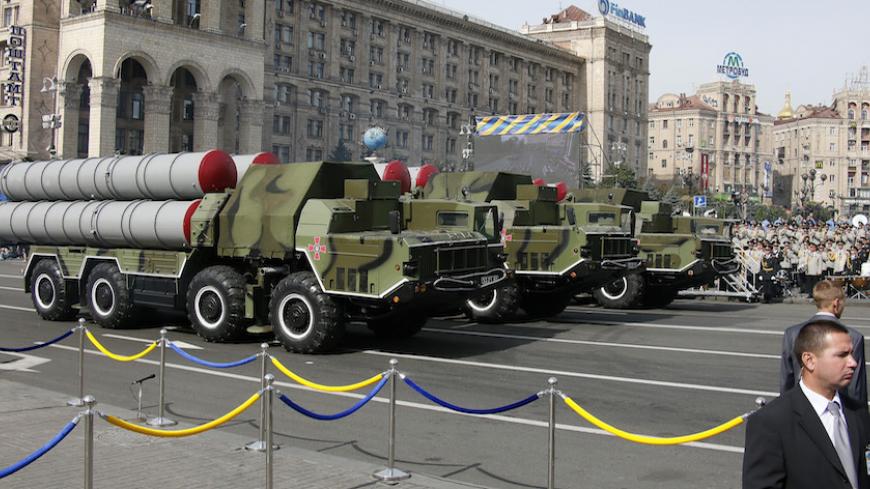One of the many unanswered questions surrounding the so-called framework agreement on Iran’s nuclear program is whether and how it will limit Russia’s arms trade with Iran, including Moscow’s long-standing interest in selling advanced surface-to-air missiles. In fact, managing the Russian-Iranian military relationship may become increasingly difficult if the negotiating parties reach a final agreement by their self-imposed June deadline.
For the United States and Israel, one of the most controversial Russian-Iranian transactions was the 2007 contract to sell S-300 surface-to-air missiles, which officials in both countries considered a potentially serious obstacle to any military action targeting Iranian nuclear sites. In September 2010, former Russian President Dmitry Medvedev issued a decree blocking the S-300 sale, as well as other conventional arms sales to Iran. Medvedev’s action followed UN Security Council Resolution 1929, approved in June 2010, banning the sale to Iran of “battle tanks, armored combat vehicles, large caliber artillery systems, combat aircraft, attack helicopters, warships, missiles or missile systems.”



